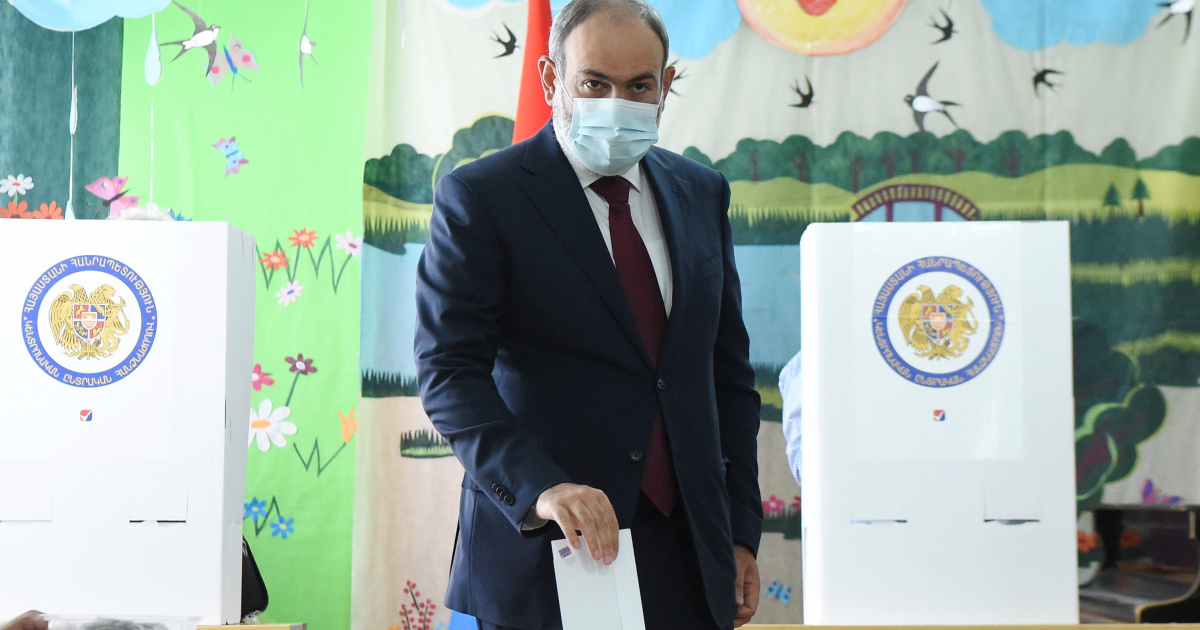Surprising Outcome in Armenia’s Snap Elections


On June 20, Armenia took an important step towards democracy, by having competitive, unpredictable elections, with surprising results. After months of tensions resulting from the 2020 Karabakh war and Armenian defeat, followed by a very polarized electoral campaign, the day of elections went smoothly, without violence. Observers of Organization for Security and Cooperation in Europe (OSCE) qualified the elections as “competitive and generally well-managed (…) Voters were provided with a broad range of options, and fundamental rights and freedoms were generally respected.” Armenia had not seen such competitive elections in decades. Just compare it to the elections in the Islamic Republic of Iran next-door two days earlier, or any other neighbouring country in the last decade – with the exception of Georgia - to underline that the event in itself was a major achievement.
The results are also surprising: Nikol Pashinyan, seven months after losing a war, still managed to receive a popular mandate to continue leading the country. With 53% of the votes, Pashinyan and his team will have a majority position in the new parliament. Two other forces entered the parliament: former President Rober Kocharyan and his ARF-Tashnaktsutyun allies received 21% of the votes, becoming the major opposition force. The third party is that of Arthur Vanetsyan and another former President Serzh Sargsyan with 5% of the votes. If one considers that 26 parties and coalitions took part in the elections, then we can see that the results, like the campaign, are polarized: it was a showdown between Pashinyan and the two former presidents, his arch-rivals. At least that is how the voters seem to have seen it.
Pashinyan and Kocharyan represent diametrically opposite visions of where they want to go. While the campaign was lacking any serious programmatic discussions, the two projected their personalities and played on symbols: Pashinyan putting forward his “anti-corruption” campaign, to “cleanse” the country from remnants of the old regime, while Kocharyan promising strong state but also one that intervenes to limit democratic freedoms in the name of national security.
The outcome of the elections reveals that the majority of the voters are more attentive to internal political issues, rather than geopolitics, and future competition with Azerbaijan.
Although Pashinyan won, yet he is also weakened: in the past he had broader popular support; today his support comes from rural areas and urban poor, making him represent underprivileged social classes. On the other hand, he lost much support among middle classes and especially among technocrats and intellectuals, a group much needed to enable reforms.
The smaller parties could not enter the parliament, partially because of their divisions but also basic misunderstanding of politics. Being largely clubs of urban intellectuals, they mistake politics for having the right “vision”, and saying the right things. That might be the profession of political science professors, but not that of a politician. Politics is the art of making coalitions and reading balance of forces, to be able to realize part of your programme, not prophesying truth.
While the new parliament has the mandate to continue the reforms started in 2018, including fight against corruption, and deepen democratisation, it also has the mandate to address security concerns and political consequences of the 2020 Karabakh war. How will the Pashinyan-Kocharyan forces interact to address the monumental problems of internal reforms and managing the Karabakh problem? What will be the focus of Pashinyan in his new mandate? How will the Karabakh question be on the agenda of the new parliament? Will Kocharyan and Sargsyan learn the art of opposition politics? Only time will tell.
Yet, it is clear that for the first time since independence Armenia has not only a strong ruling party, but also a strong opposition within the walls of its parliament.
The 2021 elections were supposed to be a referendum on the events of 2020; instead, citizens made it a referendum on 2018, and called their political representatives to continue with internal reforms, with fight against corruption and democratization. They rejected the false dichotomy some put forward: to choose either democracy or security. They chose security through continuing internal reforms. The question now is: will Pashinyan learn from his failures of the last three years, propose reforms based on larger consultations, and finally deliver?



